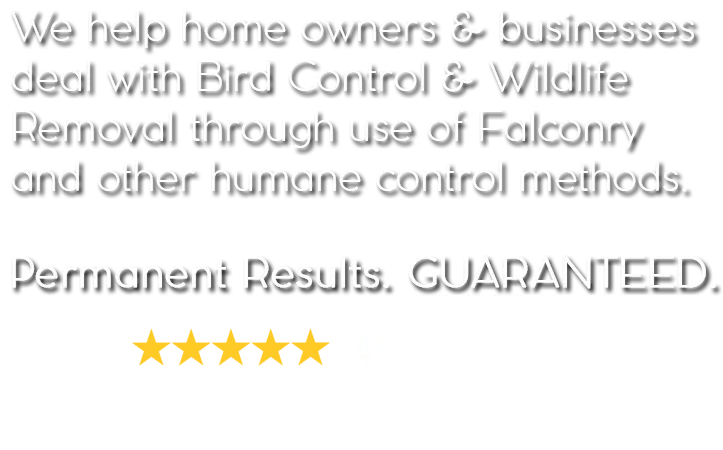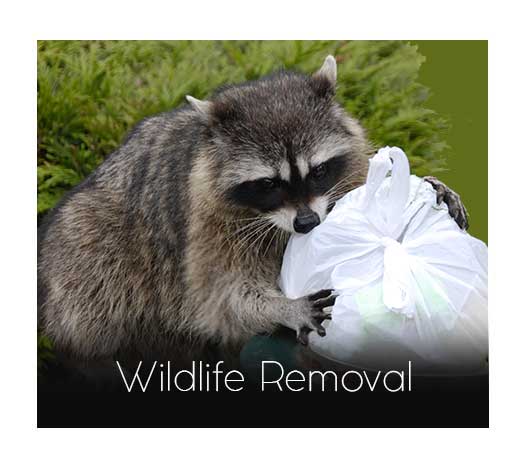Humane Wildlife Control & Removal Services in Toronto
We are authorized to PERMANENTLY REMOVE and CONTROL Pest Birds under permit and license, including Seagulls, Geese, Pigeons, Sparrows and Animal Wildlife, such as Raccoons, Skunks, and Squirrels in Toronto. We favor a multi faceted approach and employ a variety of control methods, including Birds of Prey. Additionally, we clean and disinfect affected areas, deal with the structural repair, and ensure the future exclusion of pest birds or animals.
For over 30 years we specialize in providing humane and natural, environmentally friendly services, solutions, products and systems for pest animals, birds and wildlife in conflict with humans or property. We will not needlessly or carelessly kill an animal. In addition to pest bird or animal removal and control, we consult on and implement repellents, barriers and provide human protection from damage, disease & health hazards.
With offices across Ontario, we provide removal and control services and products to help you avoid potential health hazards, costly damage to property, and loss of product and/or productivity that will occur when animal, bird and wildlife problems are not addressed immediately.



























 Trapping of Fur Bearing Animals
Trapping of Fur Bearing Animals

 Shooting in Sensitive Environments
Shooting in Sensitive Environments